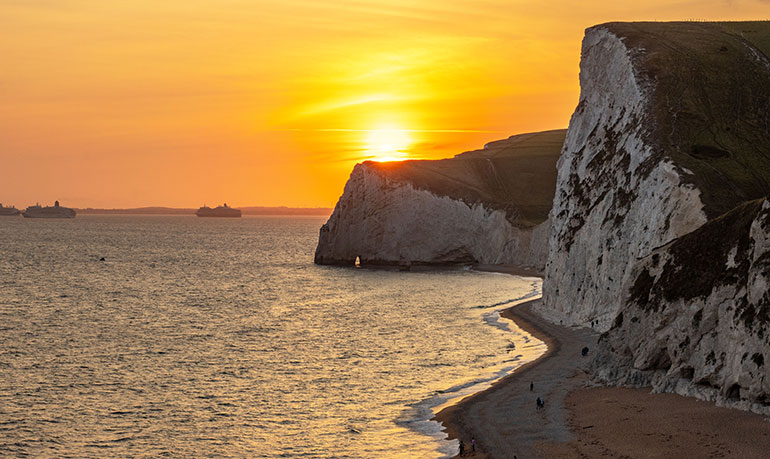Eco & Environment | Posted on May 11th, 2021 | return to news
New coastal landslide monitoring system to be trialled
Land stability and cliff movement will be monitored at key points along the Jurassic Coast in a project extension by 5G RuralDorset.

The British Geological Survey (BGS) will join Vodafone and Neutral Networks, experts in computer science from Bournemouth University and Dorset Council on the project.
It is hoped that the research can prove that using 5G connected sensors will make the process of data collection safer, more cost effective, responsive, and efficient and contribute to coastal resilience in the face of climate change and sea level rise.
Coastal landslides and cliff failures represent a significant hazard to local residents, workers and visitors to Dorset’s coast and can be expensive and time consuming to monitor using traditional methods.
Instead, during the research, sensors will collect data such as ground movement, temperature and rainfall, which will then be processed using Big Data Analytics and Machine Learning.
This work complements the studies already being trialled by the 5G RuralDorset project into coastal public safety and agritech which also use connected sensors and Edge computing for processing.
Catherine Pennington, engineering geologist and landslide specialist at the British Geological Survey, said: “Due to climate change, our sea levels are rising which means we will see an increase in erosion and landslide activity at the coast. Understanding these processes is important in building resilience for the future so we can adapt to these changes. This project is an opportunity to combine expertise to explore a different, cost-effective and efficient way of collecting landslide data. We hope the resulting system will help us understand the processes that drive coastal landslides as they happen in real-time.”
Principal Academic at Bournemouth University, Dr. Marios Angelopoulos, said: “We are excited to work on this collaborative and multidisciplinary project as it gives us the opportunity to apply our 5G and IoT research to the benefit of our region with clear social and economic impact. Also, this is a fine example of how universities synergise with Industry to develop and trial new technologies in innovative use cases, thus helping to further expand the UK’s world-leading R&D infrastructure. 5G networks are usually perceived to refer only to urban environments. With this work, we will demonstrate the great added value that 5G networks can bring in a variety of use cases also to rural areas.”
The system will be trialled at Lyme Regis and Burton Bradstock. Both sites are known for active landslides that pose public safety risks for the local community, especially people using the beach.
Please share post:









